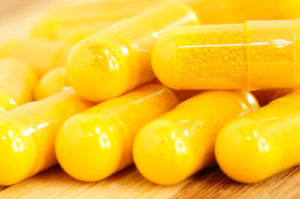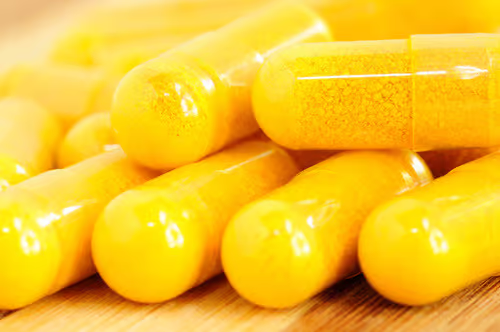Table of Contents
Berberine (Coptis chinensis, Hydrastis canadensis) is a natural plant alkaloid that has been used for millennia in traditional Ayurvedic and Chinese medicine to treat diarrhea and gastrointestinal issues.
Berberine is a unique and powerful dietary supplement with nootropic benefits. Research and clinical experience in the last 5 years demonstrates Berberine’s ability to provide positive effects on blood sugar, cholesterol, heart disease, blood pressure, autoimmune disease, inflammation, weight control, gut problems, cancer and Alzheimer’s Disease.
Berberine has recently been shown to help control blood sugar as effectively as the prescription diabetes drug metformin.
But even if you’re not concerned with diabetes or pre-diabetes, you may find benefit in adding Berberine to your nootropic stack. Our modern Western diet is detrimental to overall health. And particularly cognitive health. Berberine can be a powerful ally in achieving and maintaining optimal performance.
Here we’ll explore how Berberine benefits your brain.
Berberine helps:
- Neurotransmitters: Supplementing with Berberine has been shown to increase levels of serotonin, dopamine, norepinephrine in the brain.
- Learning & memory: Berberine preserves Long-Term Potentiation (LTP) in synapses normally lost from diabetes.[i]
- AMPK: Berberine increases adenosine monophosphate-activated protein kinase (AMPK). This enzyme AMPK is the master metabolic switch in each of your cells. When AMPK levels increase you get an energy boost, blood glucose is regulated, insulin sensitivity improves, reduced triglycerides, and increased fat-burning in mitochondria.
Overview
Berberine (Coptis chinensis, Hydrastis canadensis) is a bright yellow alkaloid extracted from plants such as Indian Barberry (tree turmeric), Oregon Grape and goldenseal.
Other plants containing Berberine used in medical practice include Chinese goldthread, Japanese goldthread, Phellondendron amurense, and the Amur cork tree (Huang Bo).[ii]

Plants containing Berberine have been used in traditional Ayurvedic and Chinese medicine as an antibacterial, anti-inflammatory, anti-diarrheal, anti-microbial, anti-protozoal and immune-enhancing therapy for thousands of years.[iii]
If you’ve only just found out about Berberine, it’s not surprising. This botanical extract came from obscurity to front and center of the dietary supplement market because of recently published research. Of the 4,434 clinical studies for Berberine listed on PubMed, over a third have been published in the last 5 years.[iv]
Berberine is one of the few nootropic supplements known to activate (adenosine monophosphate-activated protein kinase) AMPK. This is especially relevant if you’re diabetic, pre-diabetic, or over-weight. All conditions that negatively affect cognition.
The enzyme AMPK is the metabolic master switch inside each one of your cells.[v] And is critical for regulating cellular metabolism including lipid, glucose and energy imbalances.[vi] AMPK directly influences brain cell energy, function, repair, and maintenance.
Berberine activates AMPK, and AMPK activation boosts fat burning in mitochondria. Studies have shown that supplementing with Berberine prevents fat accumulation in the body.
A study in Phytomedicine had obese human subjects taking 500 mg of Berberine 3-times per day for 12 weeks. The result was a reduction in body weight, blood lipid and hormone levels normalized, and inflammation went down.[vii]
Berberine activates AMPK and increases its phosphorylation (high energy exchange in a brain cell), which elevates the AMP/ATP ratio, and reduces oxygen consumption. This increase is called glycolysis.
This suggests that Berberine enhances glucose metabolism through the stimulation of glycolysis. Which is related to an inhibition of glucose oxidation in mitochondria.[viii] More efficient mitochondria protected from oxidative stress means better brain function and memory.
Berberine supplementation helps control food intake and operates as a memory enhancer. Helping you cut down on weight gain, reduces the likelihood of metabolic syndrome, and helps prevent or control type-2 diabetes.
How does Berberine work in the Brain?
Berberine boosts brain health and function in several ways. But two in particular stand out.
- Berberine normalizes blood sugar. Glucose is the primary source of energy for every cell in your body. Because your brain is so rich in neurons, the demand for energy uses a half of all the sugar energy in your body.
Learning, memory and thinking or cognition are closely linked to glucose levels. And how efficiently your brain uses this fuel source. If there isn’t enough glucose in your brain, neurotransmitters are not produced. And communication between neurons breaks down.
Hypoglycemia, a common problem with diabetes caused by low blood glucose levels leads to a loss of energy for brain function. And is linked to poor attention and cognitive function.[ix]
Problems with blood sugar and type-1 or 2 diabetes affects brain cell connectivity, causes the brain to shrink, and restricts cerebral blood flow. Causing major problems with cognition, and if severe enough, promotes the development of dementia. Berberine helps prevent this cognitive decline by controlling blood sugar and brain cell metabolism.[x]
- Berberine boosts memory. Studies show that Berberine inhibits acetylcholinesterase (AChE) activity and increases glucagon-like peptide (GLP-1)[xi] The enzyme AChE breaks down acetylcholine (ACh) which is critical for concentration, focus and memory. By preventing the breakdown of ACh, more of this neurotransmitter is available for learning, memory and recall.
GLP-1 is a peptide hormone that plays a crucial role in controlling diabetes. And is involved in cognition, learning and neuroprotection. Studies have shown that GLP-1 enhances synaptic plasticity in the hippocampus. And reduces the aggregation of amyloid β protein (Aβ) and the microtubule-associated protein Tau which are associated with Alzheimer’s Disease.[xii]
Increasing GLP-1 with Berberine increases neuroplasticity and reduces protein aggregation resulting in an increase in long-term potentiation. And improved long-term memory.
How things go bad
Most of us in our Western society suffer from chronic nutritional overload.[xiii] Over eating or not eating the right foods in the right amounts messes with the uptake of glucose and fat from our blood for effective energy regulation.
The result is an accumulation of cellular waste and damaged proteins. Impairing genes that should help us live longer and boosting genes that cause inflammation.
As the cells in our body and brain consistently deal with over-nourishment, the enzyme AMPK decreases.[xiv] Resulting in weight gain, diabetes, neurodegenerative disease and ultimately, premature death.
Decreases in AMPK activity results in:
↓ Chronic inflammation
↓ Accelerated aging
↑ High cholesterol and triglycerides
↑ Increased belly fat
↓ Insulin resistance
↓ Mitochondrial insufficiency and dysfunction
↓ Neurodegeneration
The consequences to brain function of low AMPK activity results in decreased alertness, brain fog, slower thinking, poor memory and a decline in mood.
Berberine benefits
 Berberine has been used for thousands of years as treatment for bacterial infections, fungus, protozoa, viruses, chlamydia and candida. It helps protect against cholera and E coli. It is used as an anti-diarrheal, and to reduce inflammation.
Berberine has been used for thousands of years as treatment for bacterial infections, fungus, protozoa, viruses, chlamydia and candida. It helps protect against cholera and E coli. It is used as an anti-diarrheal, and to reduce inflammation.
Up until just a few years ago, you’d find Berberine in the pharmacy section for gastrointestinal issues.
In the last 5 years, research has shown Berberine to be effective for treating diabetes, metabolic syndrome, inflammation and even cancer.
Berberine is gaining a reputation for its anti-diabetic effects. Helping to prevent or treat type-2 diabetes. It helps with glucose metabolism, maintenance of healthy lipid levels (LDL & HDL cholesterol), improves insulin sensitivity, helps lower blood pressure, weight management, the immune system, and boosts cognition.
Research shows that Berberine may provide anti-aging benefits by extending the life of telomeres.[xv] And studies have found it’s able to suppress the growth of several different types of tumor and cancer cells.[xvi]
Reviews from those using Berberine frequently mention a lift in mood. Likely because it provides a significant increase in the neurotransmitters dopamine, norepinephrine and serotonin.
Berberine may also help prevent Alzheimer’s disease because of its effects on β-amyloid pathways, and the enzyme that degrades acetylcholine, acetylcholinesterase.[xvii]
How does Berberine feel?
If you start feeling shaky between meals, get a little dizzy or nauseous, or feel like your mood has taken a sudden turn south – you may want to try Berberine.
Many neurohackers report how supplementing with Berberine has made a dramatic change in how they feel. And their quality of life.
It may take up to a month to begin feeling dramatic changes in how you feel. Many report seeing or feeling positive changes within days.
Sugar cravings disappear. No sugar crashes late afternoon. Energy levels rise and stamina increases.
Many find that thinking is easier and quicker. Brain fog is no longer a problem. And mood is much better.
Berberine helps with weight loss so you may find your waist getting smaller. It may not be a dramatic difference but you’ll feel better.
Many people report a greater improvement in symptoms when switching from metformin or statins to Berberine.
Berberine is proven to help regulate blood sugar. Your friends and family will thank you for no longer subjecting them to mood swings.
Berberine can increase neurotransmitter levels. So a boost in dopamine and serotonin may put you in a better mood.
Many report skin conditions or gastrointestinal issues brought on by stress are no longer a problem. Less indigestion and heart burn.
If you have blood sugar issues, you may not realize how bad you feel until you start feeling better by adding Berberine to your nootropic stack.
Berberine Clinical Research
A lot of the research lately has centered around using Berberine to treat various problems associated with diabetes. So why is this important to the nootropics community?
The latest figures released by the CDC in the United States reported that 29 million people have diabetes. This number was up from 26 million in 2010. The CDC went on to say that one in four people with diabetes don’t know they have it.[xviii]
Another 86 million adults in the USA are pre-diabetic. That’s one in three American adults. Pre-diabetic means blood sugar levels are higher than normal but not high enough to be classified as type-2 diabetes.
And this is not just an American problem. The World Health Organization (WHO) reports that as of 2014, 422 million people worldwide are dealing with type-2 diabetes.[xix] I imagine that just like in the USA, hundreds of millions more are pre-diabetic.
Now let’s take a quick look at how diabetes affects the brain. Those with type-2 diabetes are more apt to get Alzheimer’s or some other form of dementia. If you’re diabetic or pre-diabetic, learning, executive function and psychomotor performance all suffer.[xx]
All the brain functions affected by diabetes and its causes can be repaired and maintained with the use of the right nootropics.
The most important nootropic supplement in the management of diabetes is Berberine. And its effects on brain function will help anyone working on brain optimization.
Berberine improves learning & memory
Problems with memory are often associated with how brain cells use glucose, by oxidative stress, and cholinergic dysfunction. Research has found that treatment with antihyperglycemics that affect blood sugar (glucose), antioxidants and cholinergic agonists boosted memory.
Berberine works as an antioxidant, and is an acetylcholinesterase (AChE) inhibitor. A study in India was done with diabetic rats with severe learning and memory problems. The rats were given 25 – 100 mg/kg of Berberine twice daily for 30 days. Learning and memory improved along with lower hyperglycemia, less oxidative stress, and more cholinergic activity.[xxi]
Diabetes kills brain cells (apoptosis), negatively affects synaptic plasticity and long-term potentiation in the brain. Which causes problems with learning and memory. Researchers in Iran working with diabetic rats were able to restore learning and memory with 100 mg/kg of Berberine per day.[xxii]
Researchers in Korea gave Berberine to rats 30 minutes before injecting them with scopolamine. The team found that daily dosing of Berberine improved the memory impairment caused by scopolamine.
Digging deeper, the researchers learned that Berberine increased cholinergic activity, restored Brain-Derived Neurotrophic Factor (BDNF), and cAMP-response element-binding protein mRNA expression in the hippocampus. And Berberine also significantly decreased proinflammatory cytokines like interleukin-1β, tumor necrosis factor-α and cyclooxygenase-2 mRNA in the hippocampus.[xxiii]
Berberine as an anti-depressant
While not considered a first-line treatment for depression, several neurohackers report the “side effect” of a better mood when supplementing with Berberine. We have some clinical evidence from animal trials that could explain this antidepressant effect of Berberine. But no human clinical trials.
Similar to L-Deprenyl, Berberine seems to be a monoamine oxidase-A (MAO-A) inhibitor.[xxiv] The enzyme MAO is involved in the degradation of norepinephrine and dopamine in the brain. And research has shown that an overabundance of MAO-A and B happens as you get older. Inhibiting MAO-A increases norepinephrine and dopamine in your brain. Which in turn improves your mood.
Research with mice showed that supplementing with Berberine increased norepinephrine (31%), serotonin (47%) and dopamine (31%) in the whole brain. Increasing these major neurotransmitters is certainly going to have a positive effect on mood.
Major depression and anxiety have long been treated as a dysfunction of the GABA, serotonin and glutamate systems in the brain. And while SSRI’s and other prescription antidepressants have had some success in treating anxiety and depression, full remission of symptoms has not happened.
Some of the latest research has shown that sigma-receptors play a role in depressive disorders. And companies are working on developing drugs that modulate the sigma-1 receptor.[xxv] Turns out that Berberine is a modulator of sigma-1 receptors.[xxvi]
Berberine as good as metformin for diabetes
Probably the most celebrated clinical evidence for Berberine is its ability to control blood sugar and lipid metabolism in diabetes. Berberine stimulates the uptake of glucose into cells, improves insulin sensitivity and reduces glucose production in the liver.
This famous study was done in China with adults diagnosed with type-2 diabetes. In study A, patients were randomly assigned treatment of Berberine or metformin 3-times per day for 3 months. The hypoglycemic effect of Berberine was similar to that of metformin. Both decreased hemoglobin A1c, fasting blood glucose and plasma triglycerides.
In study B, 48 type-2 diabetic adults were supplementing with Berberine for 3 months. Results were similar to the study A group. But the researchers noted that total cholesterol, and LDL-cholesterol decreased significantly as well.
The researchers concluded that Berberine is a potent hypoglycemic agent with beneficial effects on lipid metabolism.[xxvii] But without the increased risk of death from heart attack by using metformin.
Berberine Recommended Dosage
Recommended dose of Berberine is 900 – 1,500 mg per day.
Berberine has a short half-life, so you need to dose it several times a day to keep stable levels in your blood.
When you first start supplementing with Berberine, you may experience diarrhea, the sweats, or even vomiting. This supplement is a powerful antibiotic.
The good news is Berberine only kills the ‘bad’ bacteria in your gut. Not the good bacteria like you often experience with prescription antibiotics. But note that when those bad bacteria decide to leave your body, it may feel sick. But this side effect is only temporary.
You may be able to avoid an unpleasant reaction to Berberine by starting with a lower dose at first. And work your way up.
The debate continues on how bioavailable Berberine actually is. Recent reports suggest that it’s not detectable in blood because it’s absorbed so quickly into cells. But several clinical studies suggest Berberine is poorly absorbed. You can improve the absorption of Berberine by taking it with the sodium caprate that comes in coconut oil.[xxviii]
Take your nootropic stack containing Berberine with a tablespoon of unrefined coconut oil and problem solved.
It’s best to split your dose so you’re taking 500 mg of Berberine 3-times per day. Preferably about 30 minutes before meals which helps prevent the glucose and lipid spike the comes with eating a meal.
Berberine Side Effects
If you are dealing with a medical condition or are taking any medication (including antibiotics), you should speak with your doctor before taking Berberine. Especially if you’re currently using blood-sugar lowering medication.
Diabetics who are controlling blood sugar with insulin must use caution because Berberine can lower blood sugar. I’ve seen more than one review of someone remarking, “dropped my blood sugar extremely low!”.
If you’re dealing with low blood pressure be careful using Berberine because it can lower blood pressure.
If you’re pregnant or nursing you should NOT use Berberine.
Berberine inhibits cytochromes P450 (CYP3A4, CYP2D6 and 2C9) in your liver.[xxix] Which means it can cause a substantial increase in the bioavailability of certain drugs and nootropics. Which can be dangerous. You may need to lower your dosage of certain drugs to prevent this potential toxicity. Or avoid Berberine altogether.
Berberine affects muscle protein synthesis and causes muscle atrophy according to some animal studies.[xxx] So if you’re worried about muscle loss, don’t use Berberine. Or amp up your exercise program to counteract these effects.
Berberine has a very good safety profile. The primary side effects are related to digestion like cramps, diarrhea, gas, constipation or stomach pain.
As with any nootropic, start with the lowest recommended dose and you’ll likely avoid any problems. And spreading your dose throughout the day helps avoid side effects and keeps a steady level of Berberine available in your system.
Where to buy Berberine
Berberine is available as a powder, and in capsules as Berberine HCl (hydrochloride) or Berberine Sulfate.
One company claims that the sulfate version is superior because once the sulfate is removed during digestion, it can participate in “phase II detoxification reactions in the liver”. I cannot find any science to back up this claim.
If you choose the powder form, you’d be wise to put it in capsules because Berberine is an ammonium salt alkaloid. Which tastes nasty.
I’ve tried several different brands of Berberine, but found the liposomal form to work best Enzymedica® Phytosome Berberine.
Studies with animals show that Berberine could cause DNA damage promoting tumor growth. This DNA damage can be avoided by using Milk Thistle with Berberine. The radical-scavenging and antioxidant properties of the compound silymarin in Milk Thistle appears to counteract this effect.[xxxi] I use Zazzee USDA Organic Milk Thistle Extract while using Berberine which protects my liver and against DNA damage.
Nootropics Expert Recommendation
 Berberine 900 – 1,500 mg per day
Berberine 900 – 1,500 mg per day
I recommend using Berberine as a nootropic supplement.
Your body does not make Berberine on its own. So to get its benefits you must take it as a supplement.
Berberine is especially helpful for those dealing with diabetes, high cholesterol, obesity, gut bacterial overgrowth, and Alzheimer’s.
Berberine is a powerful nootropic supplement. It may help reduce sugar cravings, avoid that afternoon energy slump, boost energy levels, reduce brain fog, improve your mood and tame digestive issues.
You can safely take up to 1,500 mg of Berberine daily if needed. But dosed 500 mg at a time and preferably before you eat.
I use and recommend Enzymedica® Phytosome Berberine which works better than others I’ve tried and seems to be more bioavailable.
You can help absorption by taking Berberine with a tablespoon of unrefined coconut oil (for the sodium caprate). And I recommend taking it with 175 mg of Milk Thistle extract each time to avoid possible DNA damage from long-term use.









Join The Discussion - 248 comments
Jose
May 13, 2021
Hi David, could you please recommend me a good “Milk Thistle extract” that I can get on Amazon? I would also like to know Please how much Milk Thistle should I consume each time I consume Barberine?
David Tomen
May 13, 2021
Jose, I like this one because it is pure and organic: https://amzn.to/2RRnHz8
Jose
May 14, 2021
Thank you very much David, although it is not your field, I would like your opinion, please (without obligation), on whether it is safe to vaccinate my parents (67) or me (29) with the “Astrazeneca” or the “Sinovac” Vaccine, I’m afraid what they mention about the clots of blood about the Astrazeneca vaccine, above all, they are the options available in my country for now
David Tomen
May 18, 2021
Jose, I am not going to tell you what you should do. But I know that if they were my own parents I would advise them to get vaccinated. The science is clear and safety of these vaccines has been demonstrated 10’s of millions of times world-wide.
Naturally, when something goes wrong we hear about it and the press blow it out of proportion. It sells advertising. There is no guarantee of zero risk of course.
Something I learned back in school was called a “cost-benefit analysis”. The idea is to weigh the benefits against the cost and make your decision based on that. If the benefits of the vaccine out-weigh the cost (i.e. risk) then it would be wise to get vaccinated.
I realize that a large percentage of our community are “anti-vaccination”. If you are and you are reading this please know that I will not debate this with you. We each make our own decision about this. I respect that and I expect you to respect it as well.
Bob
May 4, 2021
I just took berberine for the third time ever, holy smokes it totally cleared all depression issues. I see it can increase neurotransmitters by 30 percent by acting like a mao inhibitor. I’ll have to figure out what allowed such great absorption. Had Tahiti chicken with roasted broccoli, Asparagus, Daikin radish, and mushrooms, had a couple glasses of red wine and dark chocolate as well
Phil Caine
January 27, 2021
Hello David, I notice Berberine is available in 10,000mg caps and was curious to know your opinion on such a high daily dose.
Thanks p
David Tomen
January 27, 2021
Phil, like any other nootropic supplement it doesn’t make sense to use more than the amount I recommend. Which is based on a ton of clinical studies.
10,000 mg of Berberine is not a good idea. And if fact is very likely toxic if not dangerous. The maximum dose for Berberine is 1,500 mg per day.
Linn
November 2, 2020
Hi David! Super happy to run into your article. As a holistic nutritionist, I was looking for something that was extremely informative as every other article says the same thing at the bare minimum. So thanks for putting this out there! I am curious about the side effects you listed as it’s my first time taking these. The first time I ended up really sick. I actually ended up having a pancreatitis attack and then in bed for a week with absolutely no solid bowel movements. I new it was partially due to the berberine because I only change things up one at a time when I add something new in. I decided to give.it another shot today, and I immediately got intense acid reflux which I literally never get. I am a bit perplexed as to why this is happening. If you could shed any light on this, I would absolutely appreciate it. I only took 500mg once. Hope you’re having a wonderful day!
David Tomen
November 4, 2020
Linn, when you first start supplementing with Berberine, you may experience diarrhea, the sweats, or even vomiting. This supplement is a powerful antibiotic. The good news is it only kills the ‘bad’ bacteria in your gut. Not the good bacteria like prescription antibiotics. But when those bad bacteria decide to leave your body, it may not be pleasant.
The only way around this is either not using Berberine, or using a lower dose until your system is cleaned up.
JP John
June 14, 2021
Hello, I was wondering if you confirmed to have your pancreatitis caused by taking this? or did you confirm that you had panceatitis attack in the hospital? just curious thanks.
JP John
June 27, 2021
I just decided to take berberine while having pancreatic pain after eating fried foods, On the contrary i just felt better the pain was minimized. Maybe it has different effect in me than in you but berberine also haven’t given me any other side effects so far. after almost 2 weeks taking it.
I’ve also taken coq10, turmeric and resveratrol hours before.
David
September 13, 2020
Hi David, Greetings from NZ. Firstly I would thank you for your work and sharing it. Great work.
I am 73 years old , prediabetic, ( take 1000mg metformin ) slightly overweight, fatty liver disease ( I quit alcohol). Have been taking vitamins , minerals and herbs for years. I have been taking 3mg melatonin mainly for dementia prevention and as an antioxidant, but also for sleep I guess.
I had been taking berberine for year or so (500mg) but ran out. When I ordered some more from vitacost I did some more research on it, and thus found your video and comprehensive website. I decided to up the dose to 2×500 and I now take my silimarin with it and MTC oil. I developed a hip problem late last year and have problems walking. It manifests as pain down the front of my leg, and across to the groin. By using a stick and walking like an “old man” I sort of improved the discomfort. However since starting the berberine the pain is markedly reduced. It is early days but I am quite surprised. I thought I was destined for a hip replacement. I cannot think what else to attribute the improvement to. On the Vitacost site they have customer feedback, and one person said berberine fixed her knee problem, said it was life changing. What are your thoughts about this?? :-).
Another thing that happened was my “melatonin dreams” (vivid.. I quite enjoy them) suddenly became so vivid and crazy that they were disturbing. Two nights in a row. I switched to a lower dose (750mcg slow release from Life Extension) which we happen to have. And the problem seems to have stopped. Have you ever heard of this.. maybe the berberine is increasing the power of the melatonin??
As an aside.. melatonin is prescription only in NZ and you will pay $1 a pill if you can get it. We smuggle it in from the USA for 10c a pill. It is sold freely in Australia.. so go figure. We get all of our suppliments from iherb and vitacost at much better prices.. even including shipping and now NZ VAT.
Thanks, David Swan
David Tomen
September 14, 2020
David, Berberine is a potent anti-inflammatory which could manifest in ways your suggest.
Melatonin is another story altogether. Please see my review for melatonin for more detail: https://nootropicsexpert.com/melatonin/. Better to get a natural source of melatonin by using Tart Cherry Juice from concentrate.
Helene
September 5, 2020
David, I’m a late onset type1 diabetic with high LDL cholesterol. My naturopath
added Berberine to my supplements and it does help keep my blood sugar in stable range. However I’ve been feeling nauseous and constipated since starting it I did move to taking 2-3 times a day with meals pretty quickly. Are there some ways to address this and still be able to take it? I’m disappointed as I’ve never had side effects to anything! Thanks. Helene
David Tomen
September 6, 2020
Helene, the only thing recommended to take with Berberine is Milk Thistle extract because it counters problems with long-term usage of Berberine.
I’d scale back my dosage if I was you. And use only one capsule per day for awhile. Once your system gets accustomed to it you can increase the number of daily doses.
More recent studies have also shown that high dose Omega-3s (EPA & DHA) help lower LDL Cholesterol without messing with HDL Cholesterol.
Fawzi
August 9, 2020
Hello Mister Tomen,
Thank you for the videos that you post on youtube and for the detailed transcripts on your site.
But there’s an error on this one.
“Similar to L-Deprenyl, Berberine seems to be a monoamine oxidase-A (MAO-A) inhibitor”
L-Deprenyl, Selegiline is classified as a MAO-B inhibitor.
In high doses, It can inhibits MAO-A.
“Inhibiting MAO-A increases norepinephrine and dopamine in your brain.”
Inhibiting MAO-A increases serotonin and norepinephrine, not dopamine.
At high doses Moclobemide, a MAO-A inhibitor can increases dopamine by inhibiting MAO-B.
Respectfully.
David Tomen
August 9, 2020
Fawzi, thank you for your feedback. But did you read the paragraph following that one? And did you read the abstract I linked to as well? https://pubmed.ncbi.nlm.nih.gov/18585703/
Fawzi
August 9, 2020
I read all the article.
A very instructive one.
Cjuan
July 10, 2020
Hi David,
Greetings from Malaysia. Thanks for the wonderful YT video on berberine on berberine as it’s packed with so much vital info. Recently, I came across two berberine formulations on eBay and would be grateful if you could help me puzzle out this issue :
{1} berberine HCL 10:1 extract
{2} 97% pure extract [standardized?]
Which of the two is the more potent one? I get the impression that {2} is an ordinary standardized extract but not as concentrated as {1}. What do you say?
Kindest regards, Cjuan
David Tomen
July 11, 2020
Cjuan, I’d say athe 97% extract was more potent. But either way, as long as the company is trustworthy and tests their product, you’re going to get a powerful Berberine supplement. This nootropic is not to be messed with. So please read the side effects section of this review carefully.